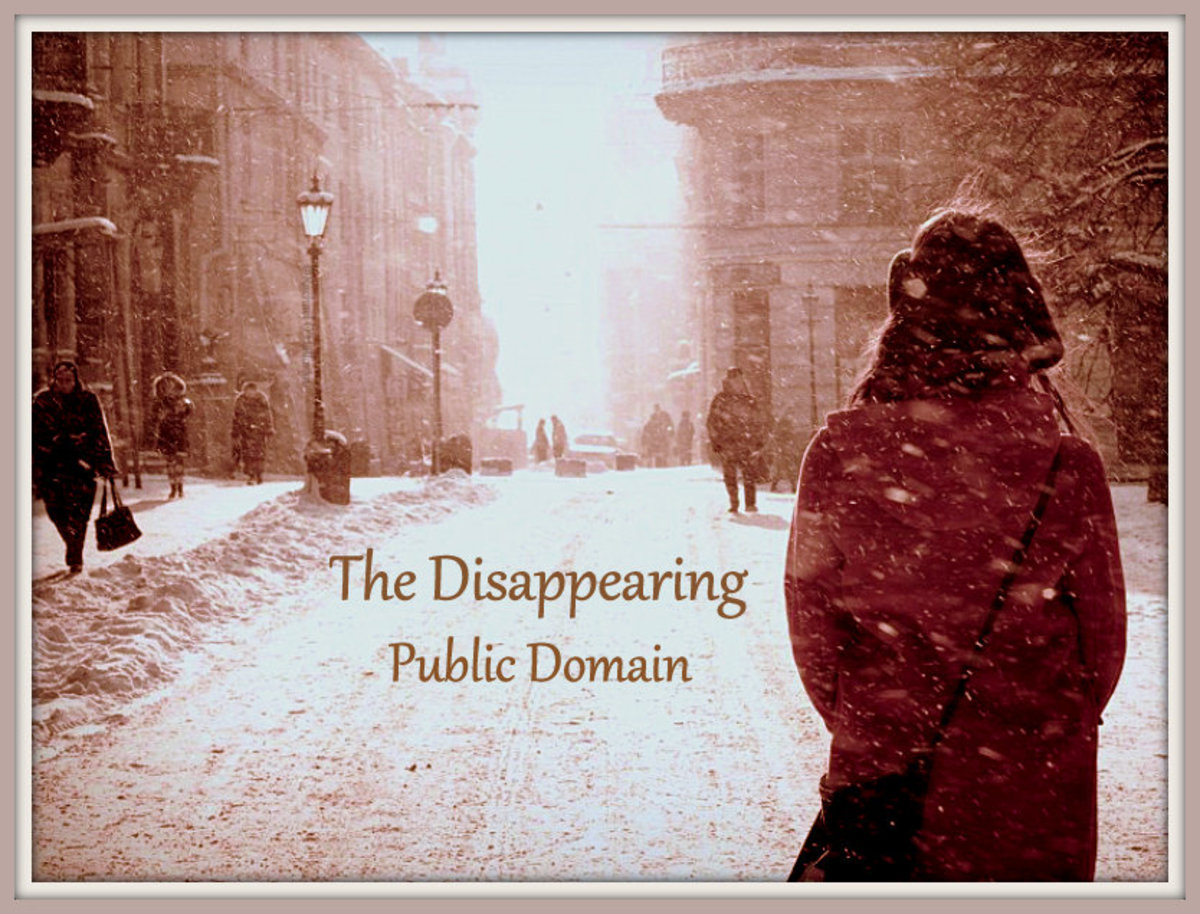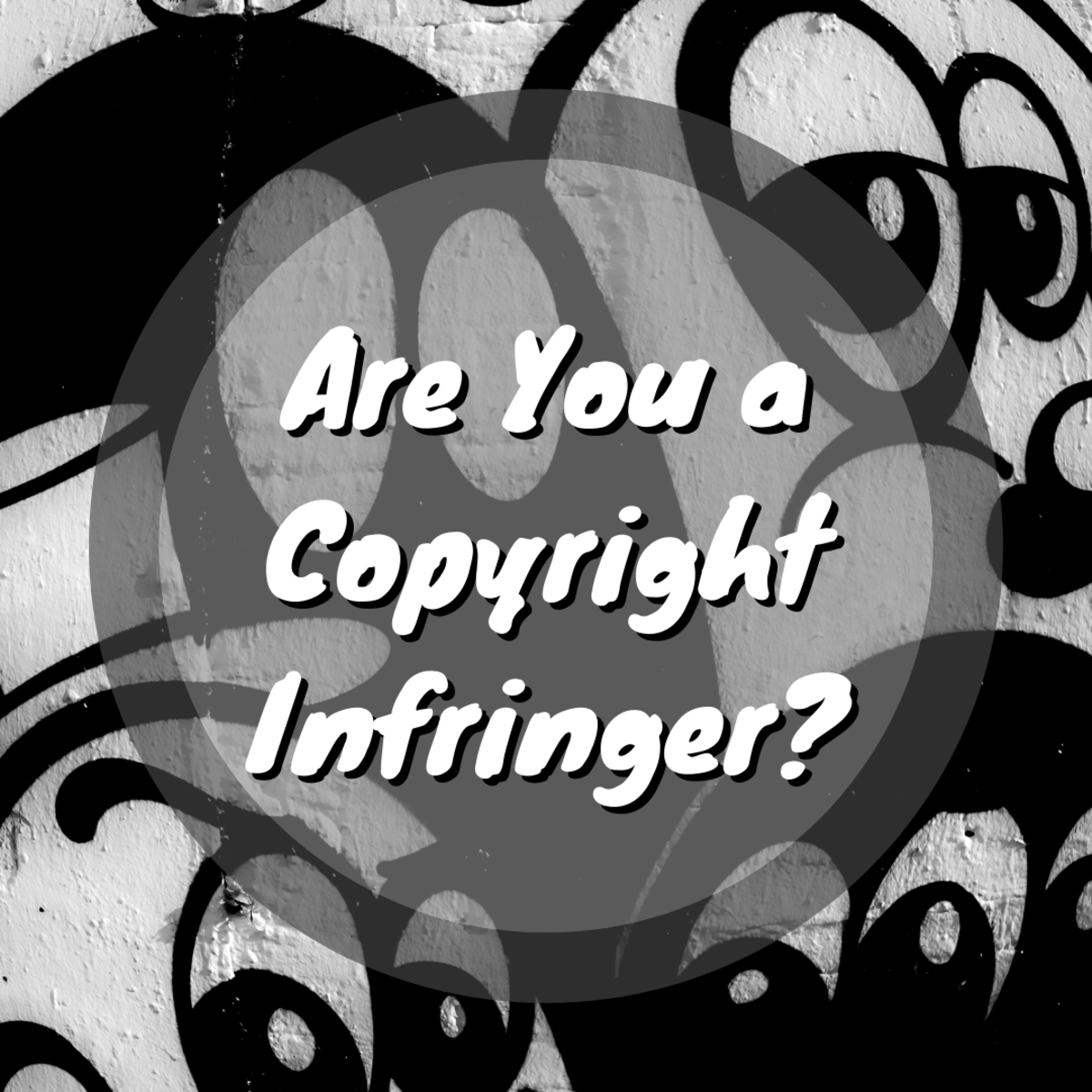Spotlight On | Creative Commons Licenses | How To Choose The Right One For You
By Rachael O'Halloran
Published November 30, 2014
Creative Commons Licensing - Choices For Those Who Want To Share
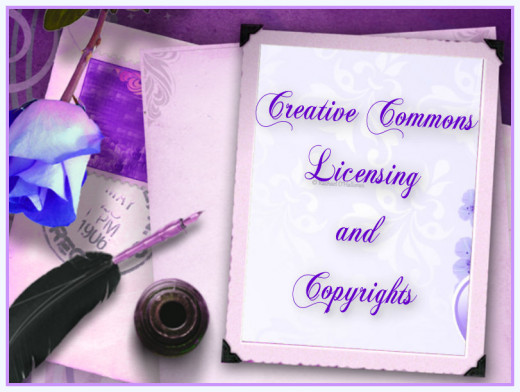
Disclaimer
I am not a lawyer. No part of this article should be considered legal advice.
It's hard work trying to enforce your copyright!
While it is agreed that copyright infringement is decidedly wrong, authors are finding that trying to undo that wrong is almost impossible.
After filing against infringers, they learn that nothing is "totally" removed from the internet because of random cache copies, the "Way Back Machine," not to mention the copies from those who also copied from the infringer.
That's why when confronted with infringement, some authors rather not go through all the trouble of filing a DMCA, doing re-checks to make sure the infringing work was taken down (and stayed down), and keeping tabs on potential new infringements by constantly Googling selective sentences from each of their works.
There's gotta be another way.
Well, there is, but it means replacing the words "all rights reserved" on a completed work.
A Word About Copyrights
As you know, all works are copyrighted the moment you create them into a fixed, tangible form. Gone are the days when you had to rush to register a copyright with the Copyright Office or utilize the "Poor Man's Copyright" (mail your completed work to yourself and leave it unopened in a drawer somewhere).
A copyright is your assurance (and insurance) that when you create a work, you have the final say over what happens with it - reprints, adaptations, downloading or sharing to websites or other venues. It is true that the copyright process has been made easier than ever, but unfortunately, so has the copyright infringement process.
An artist (writer, photograph, paint artists, videographer, etc.) has to be on their toes to constantly protect their copyright from infringement.
The life of a copyrighted work used to be:
- The Copyright Period
- The Public Domain Period
- The "Gone down in History" Period (or in some cases, the "Lost in Obscurity" Period)
It doesn't have to be that way anymore.
Fast Facts About Creative Commons Licenses
- There are 7 Creative Commons licenses to choose from, depending on your preferences
- All are free
- No registration
- Foreign rights are recognized
- Your name never leaves the work. You retain your copyright even when you allow others to distribute and make some uses of your work.
- Licenses last as long as your original copyright.
- You can choose to grant additional permissions when deciding how you want your work to be used.
- After you select a license from the list, put it on every work you are covering with it, and it is instantly valid from the time you write it on the work.
- Creative Commons licenses do not replace your copyright. They enhance your copyright by giving your work the exposure that it might not otherwise enjoy and by allowing others to distribute, tweak, build on and remix the work.
- You can choose a different license for each work, so you can control what happens to that work in the future.
- Using a CC license in no way diminishes the value of your work, nor do you lose control of how your work is used in the future. Or ... not used, depending on the license you assign to each work.
- Creative Commons Licensing takes the guesswork out of permissions
Licensing With Attribution
Allow me to introduce you to "Creative Commons licensing."
Note: There are free and non-free licenses. This article will only focus on the free licenses.
Creative Commons Licensing Is Not One Size Fits All - You Have Choices
While copyright law assigns the same cookie-cutter rights to each work, there are seven choices of Creative Commons licenses which can be chosen for each individual work.
Using a Creative Commons license does not mean you give up your copyright.
What you are doing is allowing people to use some of your rights to your work in the way you specify on the license, under certain stated conditions, provided that they give credit back to you in their new work and all works created thereafter.
To be able to use any of the Creative Commons licenses, you must be willing to allow a certain degree of freedom with your work, as you will see in the wording of each license.
Choosing which license is right for your work will probably be the biggest challenge.
In order to do that, answering a few questions regarding your preferences and your vision for the future of your work will lead you to the correct license.
It might even increase your visibility so you get "discovered" - now in 2015, not in 3015.
Some Questions To Decide If Creative Commons Licensing Is For You
These are a few of the questions paraphrased from the Creative Commons website.
If you answer YES to "any" of the following questions, you have entered the fast lane to get your name and work known using a Creative Commons license:
- Do you want to let others use and share your photographs, but don't want companies to sell them?
- Do you want to let bloggers to republish your blog posts, as long as they give you an author credit?
- Would you like to give others the right to share, use, and even elaborate upon a work you have created to be make it into a new work?
- Do you want your work redistributed in commercial or non-commercial venues, as long as it is unchanged and your name remains on it?
- Do you want to restrict use of your videos to downloading and sharing, with no changes or alterations of the work, as long as it is non-commercial and you are given credit?
- Do you want to allow commercial use (or not)?
- Do you want to allow derivative works (or not)?
- Do you want to allow redistribution of your work, with absolutely no changes, and with credit to you?
- Do you want to let others remix, tweak, and build upon your work non-commercially, as long as they credit you and license their new creations under the identical terms?
- Do you want to allow others to download your works and share them with others as long as they credit you, but they can’t change them in any way or use them commercially?
- Do you want your work to go directly into the Public Domain?
- Do you want your work to be used for educational purposes only?
This graphic might help you decide
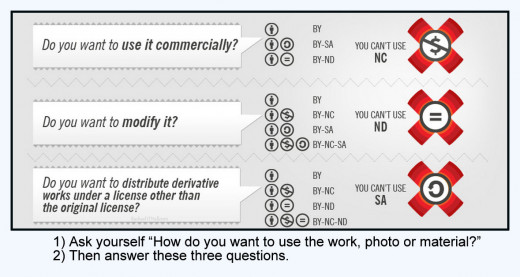
Creative Commons Licensing Explained
Seven Choices of Creative Commons Licenses
From this point forward, the content of this article was originally created by CreativeCommons.org and I have edited, remixed and paraphrased (sidebars & callouts) which comes under CC BY 4.0 - Creative Commons 4.0 Attribution License.
While it is not necessary to include the "4.0" on each license, since licenses 1.0 through 3.0 have been retired, it does help to identify the timeframe of license creation. 4.0 has been in use since November 2013. The link will show you the history of 1.0 to 4.0.
First license:
* CC BY 4.0 (Attribution 4.0 International)
This license lets others copy and redistribute (SHARE) the material in any medium or format. It allows one to remix, transform, and build upon (ADAPT) the material for any purpose, even commercially.
The licensor cannot revoke these freedoms as long as the license terms are followed.
ATTRIBUTION - Users must give appropriate credit, provide a link to the license, and show if and where changes were made. This should be done in a reasonable manner, but not in any way that implies that the licensor endorses the user or the use of the work.
Creative Commons Categories
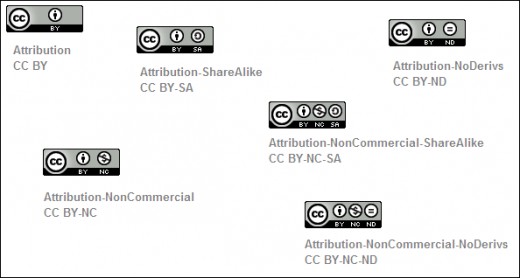
* CC0 - Universal Public Domain Dedication
This license allows you to waive all copyright and related rights to a work to the extent that is possible under the law.
This is primarily used by those who want to share databases - libraries, researchers, search engines - and when a public domain work is reworked or refurbished (recordings, etc.) then re-released into the public domain.
I think this Creative Commons option would be beneficial to open the door for a new author who has a useful work to offer to the public. It would get their name out there for recognition, then for works after this one, they could keep them under copyright.
It's About Sharing
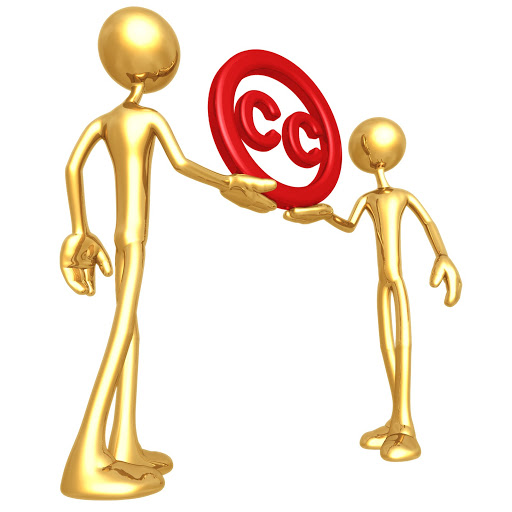
* CC BY-NC-ND 4.0 (Attribution-NonCommercial-NoDerivatives 4.0 International)
This license allows others to ONLY copy and redistribute (SHARE) the material in any medium or format. The licensor cannot revoke these freedoms as long as users follow the license terms.
ATTRIBUTION - Users must give appropriate credit, provide a link to the license, and show if and where changes were made. This should be done in a reasonable manner, but not in any way that implies that the licensor endorses the user or the use of the work.
NON COMMERCIAL - Users may not use the material for commercial purposes (monetary compensation)
NO DERIVATIVES - If users remix, transform, or build upon the material, they may not distribute the modified material. Changing the format does not mean the work is a derivative.
* CC BY-NC 4.0 - (Attribution-NonCommercial 4.0 International)
This license allows others to copy and redistribute (SHARE) the material in any medium or format and to remix, transform, and build upon the material (ADAPT). The licensor cannot revoke these freedoms as long as you follow the license terms.
ATTRIBUTION - Users must give appropriate credit, provide a link to the license, and show if and where changes were made. This should be done in a reasonable manner, but not in any way that implies that the licensor endorses the user or the use of the work.
NON COMMERCIAL: Users may not use the material for commercial purposes (monetary compensation).
Termination of CC License
If a user fails to comply with the licenses, then his rights under the license will terminate automatically.
It can be reinstated on the date the violation is remedied, provided it is within 30 days of the discovery of the violation, or upon the express reinstatement by the licensor.
* CC BY-NC-SA 4.0 - (Attribution-NonCommercial-ShareAlike 4.0 International)
This license allows others to copy and redistribute (SHARE) the material in any medium or format and remix, transform and build upon the material (ADAPT). The licensor can't revoke these freedoms as long as users follow the license terms.
ATTRIBUTION: Users must give appropriate credit, provide a link to the license, and show if and where changes were made. This should be done in a reasonable manner, but not in any way that implies that the licensor endorses the user or their use.
NON COMMERCIAL - Users may not use the material for commercial purposes (monetary compensation).
SHARE ALIKE - If users remix, transform, or build upon the material, users must distribute contributions under the same license as the original work.
* CC BY-ND 4.0 - (Attribution-NoDerivatives 4.0 International)
This license allows others to ONLY copy and redistribute (SHARE) the material in any medium or format for any purpose, even commercially. The licensor cannot revoke these freedoms as long as you follow the license terms.
ATTRIBUTION - Users must give appropriate credit, provide a link to the license, and show if and where changes were made. This should be done in a reasonable manner, but not in any way that implies that the licensor endorses the user or the use of the work.
NO DERIVATIVES - If users remix, transform, or build upon the material, users may not distribute the modified material.
* CC BY-SA 4.0 - (Attribution-ShareAlike 4.0 International)
This license allows others to copy and redistribute (SHARE) the material in any medium or format and to remix, transform, and build upon (ADAPT) the material, for any purpose, even commercially. The licensor cannot revoke these freedoms as long as you follow the license terms.
ATTRIBUTION - Users must give appropriate credit, provide a link to the license, and show if and where changes were made. This should be done in a reasonable manner, but not in any way that implies that the licensor endorses the user or the use of the work.
SHARE ALIKE - If users remix, transform, or build upon the material, they must distribute their contributions under the same license as the original.
From Creative Commons Website
If you decide to allow derivative works, you can choose to require that any new work have the same license attached to it (made available under the same license terms). You can also choose to grant additional permissions when deciding how you want your work to be used.
What If I Change My Mind?
Once others start using your licensed work, it is "out there" for the rest of the copyright period. You can STOP distribution of the work any time you want, but you can't recall all the uses or stop people from redistributing it.
With that said, what you can do is ask others to remove the link back to your attribution information and ask them to stop distributing it as such, but anyone who has a copy of the work can continue to redistribute it under the license terms. There is no "instant notification" system to get the word out that you are no longer licensing the material under Creative Commons.
-- Paraphrased from Creative Commons FAQ's.
Notification To Author
While it is not mandatory to inform an author that you are using his Creative Commons licensed work in a way that is included under the licensing, don't you think he would be happy to know that someone was building on his work?
I think it would make him glad he made the decision to use a CC license to share his work. So, shoot him an email to let him know.
What If I Don't Like The Way They Used My Work?
- As long as users abide by license terms and conditions, you can't control how the material is used - unless you add more stipulation to the licensing agreement. On the other hand, CC licenses allow you to choose not to be associated with their material or to uses of their material with which they disagree.
- All CC licenses prohibit using the attribution requirement to suggest that you endorse or support a particular use.
- You may waive the attribution requirement, choosing not to be identified as the user.
- If you don't like how the material has been modified or used, CC licenses require that the user remove the attribution information upon your request. (In CC 3.0 versions and earlier, this is only a requirement for adaptations and collections; in CC 4.0 versions, this also applies to the unmodified work.)
- Anyone modifying licensed material must indicate that the original has been modified. This ensures that changes made to the original material, whether or not you approve of them, are not attributed back to you.
-- Paraphrased from Creative Commons FAQ's.
Some Advantages of Using Creative Commons Licenses
Using a Creative Commons license can:
- Help you meet others to collaborate on ideas for your work.
- Help with name recognition
- Bring more opportunities for work
- Bring attention to your non-Creative Commons works
Copyright Infringement
The following video is one of my YouTube creations. Eric, the author in this video, holds full copyright to his work. Then, he sees something familiar on television ....
1. My Copyright Infringement Video
About Creative Commons Licensing
The following video shows how Eric's choice led to more exposure for his work.
2. About Creative Commons Licensing
Resources
Poll
How likely are you to consider Creative Commons licensing?
This article has Creative Commons Licensing
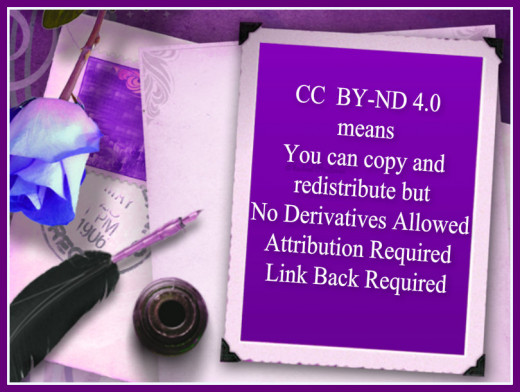
CC BY-ND 4.0 Rachael O'Halloran



